Bereaved Mothers feel a lot of emotions. No two moms of children in heaven feel all the same things, in the same order, or to the same extent. Fear is an emotion that can wreak havoc on our already fragile hearts. In this precious community I’m a part of, bereaved mothers who’ve lost babies, mommies express their fears to one another. One category of fears involves fear of what others will think. I know, I know. We all tell our kids, “It doesn’t matter what other people think!” Probably true. Yet, for some of us, the fear remains.
I don’t know what it’s like to walk the path of losing an older child, and I pray I’ll never know. But I do know the path of miscarriage. I know the path of infant loss. I wonder if we fear what people think because the love we carry for our babies is so tender. We protect their memories fiercely. Even our assumptions of what people think can cause strain on us.
Like all fears, many of these are probably irrational. I know most people in my life do not think these things. I’m not even sure who the “you” is I am writing to; it is certainly no one in particular. But I share this list so you can continue to help bereaved parents in your life, and honestly, so you can help me. There is something therapeutic about putting names to fears, getting them out in the open where they have less power. Maybe a mom in your life can be relieved of the power of fear if you assure her you do not think these things, or if you make a point to speak truth against these lies. Or, if you do think some of these things, you will understand how hurtful it can be if you express these thoughts. Maybe you’ll even change your thinking a little.
1. We fear you will think another baby or child, biological or adopted, will replace the one(s) we lost.
A couple times after Elliot died, people said, “Don’t worry, you can have another one.” This is just not true. I won’t have more biological children, though we do hope to adopt one day. But many of my friends who can and do have a “rainbow baby” fear that people will think the new baby assuages the grief or replaces the child who has died. I think if you thought of your own child, no matter what age, and imagine his or her death, you know there would not be “another one” who could make it better. For some reason, people seem to think this particularly about babies who die in utero or shortly after birth. Though we did not get to know our babies, they were and are irreplaceable. A new baby or an adopted child can bring tremendous comfort and joy. When I was pregnant with Elliot and thought he would live, I felt great comfort after the pain of my miscarriages. But his presence in my life did not take away the grief for the children I’d already lost. And now that he’s gone too, I know that the ache for my children in heaven will continue to exist alongside the joy for my children on earth.
2. We fear you will see our progress as proof we have “moved on” with our lives.
People in my life have been very supportive as we’ve started our journey into the world of foster care. But I feel uncertain in how to respond to certain reactions. A very sweet lady who found out we are becoming foster parents said, “It’s wonderful to see how you’re healing and moving on with your life.” That’s a kind sentiment and had no malice behind it. I guess it’s just inaccurate. The best way I can explain it is this: while I do want to grow and heal and share a lot of love in this life, Elliot’s life and death isn’t a bump in the road to “get over.” That’s kind of how a comment like that feels. I don’t want the experiences of my miscarriages, terrifying pregnancy with Elliot, hospital bed rest, and his birth and death to all be boiled down to a Hallmark movie in need of a happy ending. I do believe God brings beauty out of ashes. But I fear you want to find “meaning” in my tragedy that simply isn’t there. For example, my desire to foster does not come out of a place of great healing, but actually out of my brokenness. It’s all I can do, to love children who need a home, while aching for children who are away from me. And moving on? A part of my heart is forever in St. Joe’s Hospital with my boy. I don’t know if that part of me will ever “move on.” But moving forward is something I must do out of love for all my children, out of hope in my eternal home to come, and out of a desire to make my days alive on this earth count for something.
3. We fear you will not include our heaven babies with our living children.
This can come up at holidays, in counts of nieces and nephews, or in counting grandchildren. It is obvious to us that our deceased children are not here. Yet we include them in the “count” of our children. We fear you might think, “Out of sight, out of mind,” in regard to our babies. Nothing could be further from the truth. We don’t always know how to answer the question, “How many children do you have?” But we do crave safe relationships in which we can include our heaven babies. Thankfully, my family has been phenomenal about including my heaven children. When my mother-in-law got married in January, she put a big picture of Elliot front and center during their wedding ceremony. She said she wanted him there along with the rest of her family. My mom had a customized bracelet made this year to represent her grandchildren–all her grandchildren: Sylvia, Valerie, Avery, Everett, and Elliot. These acts of remembrance are life-giving to me. I don’t think we expect you to talk about our deceased children in the same ways you would about our living children. We simply fear you will not include them when those moments come up. When a special opportunity arises to include our heaven babies and they are not included, we fear that, to you, it’s like our babies never even existed.
4. We fear you will think we are seeking attention.
I know I feel self-conscious about this sometimes, and other bereaved mamas in my life have expressed the same feelings. We fear people are thinking something like, “Sheesh, there she goes posting about her baby again. Yes, he died. Yes, it’s sad. But does she have to write another blog post about it? Does she have to put up that picture again?” It would take a pretty callous heart to really think those things, but we fear you do think those things! I guess the truth is that, in a way, we are seeking attention. Maybe somewhat for ourselves, because we are hurting and are seeking comfort wherever we can find it. But more than that, we want to share about our children in heaven in the same way we share about our children on earth. I can post a video of Sylvia and Valerie dancing, or reading for the first time, or a picture of the first lost tooth. I will never, never, NEVER get to post any of those things about Elliot! But I want to share about him and brag on him and make you think about him just the same. So I share when I’m thinking about him. I share what his life has taught me. I share about how much it hurts that he’s not here. I do want attention–the attention any parent wants for her child.
5. We fear you will think we are being petty or selfish.
Thankfully, many of our reactions can be shared in the safety of grief support groups. We rationally know we shouldn’t be angry at women in our lives who have healthy pregnancies, or for the joy of another family expanding with a newborn baby. But sometimes we do have initial petty reactions which are always born out of our own grief for the child we’ve lost. I think, though, we fear you’ll think we’re being selfish or just feeling sorry for ourselves if we can’t be as happy as we once would’ve been. Since Elliot has died, several dear friends have gotten pregnant and/or had babies. Sure, I may have some self-pity and jealousy reactions that I keep to myself or share in the safety of a support group. But I know in my heart that I am also very happy for these ladies. They are my friends. They are my family. But my happiness is not a giddy feeling, it is an intellectual happiness. It’s also a happiness that necessitates boundaries. There are simply days when I cannot chat on and on about another mom’s pregnancy symptoms. There are days I have to keep these topics at arm’s length. We bereaved mothers of babies are really not just living in self-pity or pettiness if we pull away from your joy. We are happy for you. But your precious happy news reminds us of the most precious treasure we have lost. It really sucks, actually, and is one more thing death has stolen from me. I can’t tell you how much I’d rather be chatting away with lovely women in my life about their weight gain and heartburn and birth plans and birth stories. I’m mad that the silly joy most people experience for anything baby has been taken from me. I hope one day it will return, and there are times when I do feel it again, like when my precious little nephew smiles big at me. There are remnants of joy. We are trying to be happy for you. We just miss our own children so much, and we are so sad that the beautiful experiences of pregnancy, childbirth, and having a newborn are now mingled with such grief and pain.
6. We fear you have a timeline for our grief.
Several moms I’ve talked to have had the fear that after one year, people will not be as patient with a grieving mom. We fear you will get sick of hearing us talk about our babies. Honestly, you might. But I can guarantee you are not hearing us talk about our babies as often as we think about them. We’d talk about them almost constantly if we could, but we know no one else lives in the reality of missing them as we do. We fear you think, “Time heals all wounds.” No. Time softens the blow. Time makes reality set in. Time makes us able to smile at neighbors and go to the grocery store without having panic attacks. Time causes us to be able to function again. Time also creates day after day after day of missing memories with our children. Time creates years of birthdays we celebrate without them. Time creates hundreds of photographs without our child completing the picture. No, time does not heal the wound of child loss. Only God can do that, and even then this wound will not be fully healed until we are reunited with our little ones in heaven. The first year was really hard, and I appreciated the sensitivity to that. But the fear is that you will not understand all the ways I’ll relapse into grief this second year, and in all the years to come. That you’ll think it’s odd if I can’t bring myself to go to a baby shower in five or ten years. I don’t know how I’ll feel then. I don’t know how I’ll feel tomorrow, honestly. All I know is that the effects of grief and trauma are unpredictable and, at times, uncontrollable. We fear you won’t understand when we relapse into dark times, as time goes on. So just know our grief knows no timeline. We will live a lifetime without our children, so we will grieve for a lifetime.
7. We fear you’ll judge our faith.
Not all baby-loss moms in my acquaintance are Christians, but a lot of them are. Like at any point in our relationships with God, we have highs and lows. We try to find encouragement in our faith because we need help, not because we necessarily feel strong. But I think we fear that you’ll judge our doubts, struggles, and weaknesses. I’ve been pretty open with mine, but that doesn’t mean I don’t fear judgment. I’m open because I can’t pretend about this. I’ve pretended many times in my life about the strength of my faith, and I don’t even think I was aware I was doing it. But the violent upheaval of my faith which occurred when my baby boy died has stripped me of all pretense. Maybe that’s a good thing, and a more genuine faith will endure. But I fear you’ll think, “If I lost a baby, I wouldn’t have as many doubts and questions as she has.” On the other side, we can also fear you’ll think we have some superhuman faith. If we talk about the hope of heaven, or where we’ve seen the grace of God, we fear you’ll think we’re stronger in our faith than we really are. The truth is, we are just trying to make it day by day. We find hope in our Savior, but we also experience great spiritual struggles. Our eyes have been opened to the pain of this life, and thus the desperate need for the life to come. We hold on to God not because we are so strong, but because we are so, so weak. We can’t put our faith back in the box it might’ve once been in. Faith is another facet of our grief journey which is not predictable.
8. We fear you will compare our baby loss experience with someone else’s baby loss experience.
No two people are the same, no two children are the same, no two experiences are the same. Being able to relate to other bereaved parents is a HUGE factor to healing, so some comparison is good. It’s been helpful to know how other moms have found their way to daylight again. But even as close as I’ve gotten to other bereaved moms, there is a knowledge that we cannot ever fully understand one another’s experience. The trauma therapist my husband and I have seen since Elliot died has helped us understand how much our own life history and personality plays into how we grieve. The level of trauma experienced also greatly affects how grief progresses. So, if you know a parent who lost a baby and who seemed to be “better” in six months or a year or two years, don’t try to compare our experience with that person’s experience. Or if you have a cousin who had a miscarriage once but didn’t seem too upset about it, don’t try to compare us. There are too many factors which make our experiences different. If you compare, you run the risk of thinking we are not doing it right, and that judgment will be apparent to us. The more you can listen and support us in our individual stories, the more you can help.
9. We fear you will not understand the ways we choose to honor our child’s memory.
I’ll admit it. Once upon a time I did not understand showing pictures of a dead baby. “That’s the saddest thing I’ve ever seen!” I thought. And then I was uncomfortable. And then I’m pretty sure I vaguely wondered if it wouldn’t be better if the parents would just keep those kinds of pictures to themselves. Well, of course now I understand. What else can a parent who’s lost a baby do? What other pictures do we have? We want you to see who they were! How beautifully formed, how perfect, how incredibly loved they were. Elliot was almost full term, and so I think people are a little more open to his pictures. But moms who’ve lost babies at any gestation are just as proud, and I personally love when I see beautiful babies of 20 weeks, 18 weeks, 16 weeks. I didn’t take any pictures of my Avery Rose, but I wish I would have. I wish you could’ve seen her precious little 9-week body. Did you know I could see where her eyes were forming in her perfect little head? Do you get how incredibly loved she was? That she was a baby, and not a miscarriage? But I don’t know if I would’ve posted her pictures if I’d had them. I’d fear you thinking it was inappropriate of me to post, and that you wouldn’t treat the memory of my dear child compassionately. But it’s not just pictures. It’s the regular ways we celebrate them, and maybe invite you to celebrate with us. It’s the tattoos we get, the jewelry we wear. It’s the presents we buy for them at Christmas or their birthday. It’s the ways we talk about them and have stuffed animals that represent their presence. Part of the life of a bereaved parent becomes carrying the lives of our children. I am not just Heidi. I am Heidi, along with Avery, Everett, and Elliot. I carry them with me. I honor their memories because they are not here. This is my job! I am their mother.
10. We fear you will forget them.
This fear is big, and it’s probably the worst one because, well, it’s partially true. This fear is not so much about what you will think but about what you won’t think: that you won’t think of our heaven children at all. That you will forget them. I don’t mean you will forget them in the sense that you will forget we were ever pregnant with our babies or that they died. But you have your own lives to live, your own children to raise, your own tragedies to endure. I want the world to constantly remember Elliot like I do, but I know that’s a ridiculous and impossible request! I care about my friends who’ve lost children, but of course I don’t think about their children nearly to the same extent I think about my own. This is where the road of child loss becomes so lonely. Our children will not live on in your memory constantly. I guess that’s why the small ways you do remember them matter so much. It is welcome when you bring up our babies if a thought of them crosses your mind. We so appreciate it when you let us talk about them, and when you encourage us to do so. The presence of my living children is here for you to notice; the presence of my heaven children is just as palpable for me, but it’s invisible to you. I just wish you could’ve known my Elliot. You would’ve loved him. That stupid enemy death snatched him away too soon. But you would’ve loved him. He was gentle and adorable and unique, as Avery and Everett would’ve been. I know you can’t remember them like I do, but please don’t forget. Memory is all I have. It is so, so sacred. Remember, friends, with the bereaved families in your life. Remember.

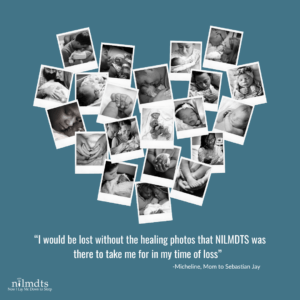

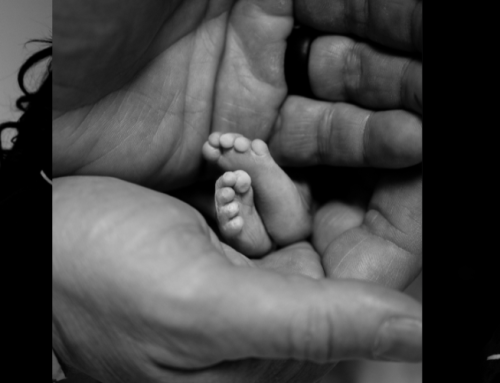
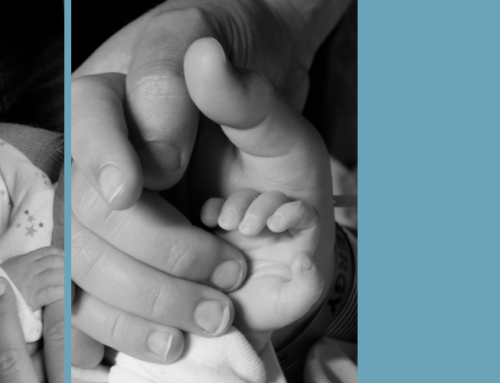
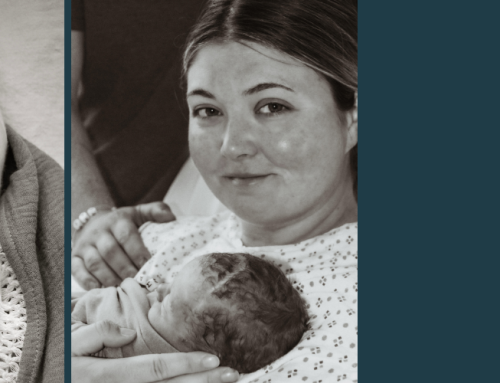
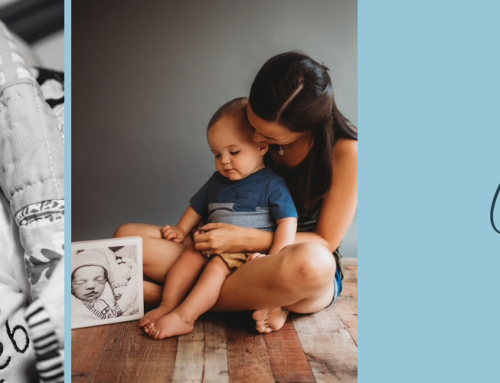

You said it all. We lost our baby girl at 16 weeks, and our only son at 15 years old.
So many feelings… so many moments…so many tears…so many words…so much time, just still so much hurt.
Since discovering this website I’ve learned so much. My youngest son was a twin. Although I never knew his twin, that baby is still special to my heart. I always thought I had to keep it to myself but since being on this site I’ve learned its ok to talk about that lost baby & its ok to grieve over them. I don’t know if the baby was a boy or a girl so I just call them Angel. That was the name we picked out for my son. Either Anthony or Angel. Since Anthony is here & the other baby is not I call them Angel. Anthony just turned 28 Sept. 19th. I almost lost him a few times because he was a very sick little baby but thankfully he is strong & healthy & wonderful. Thank you so much for making this site. I love it & I always tell everyone about it.